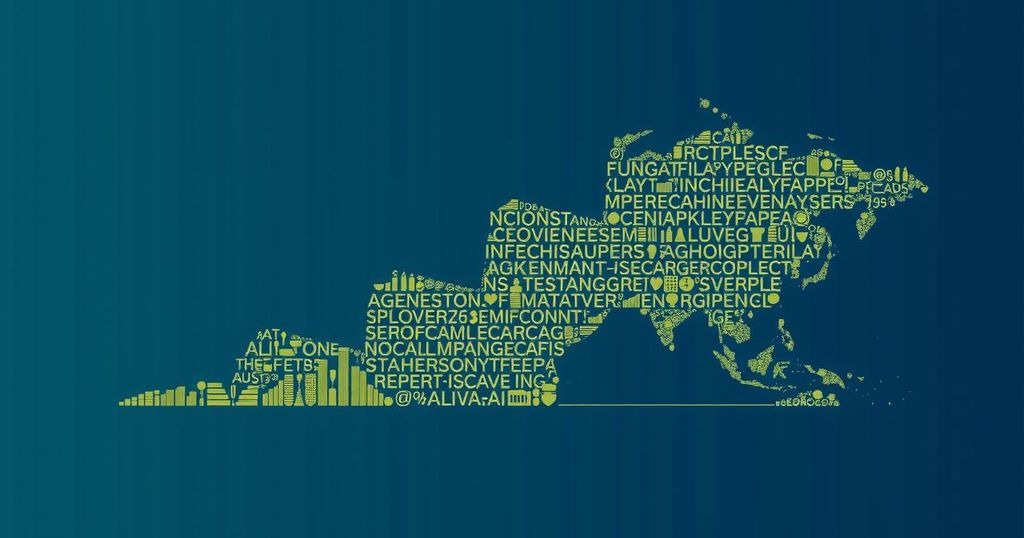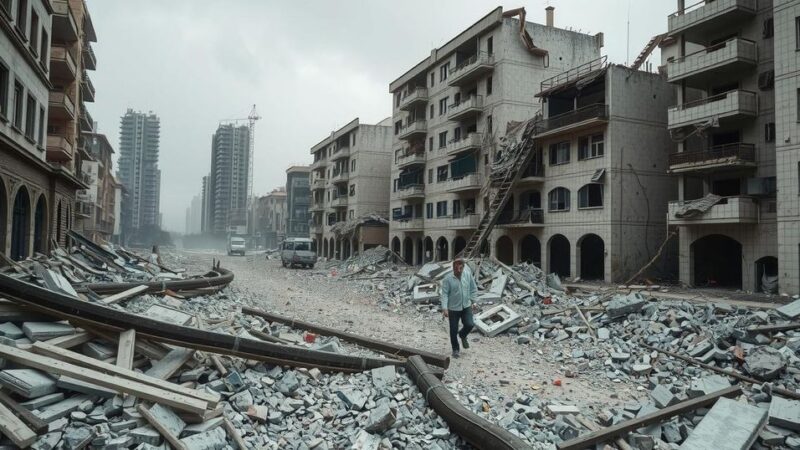World leaders at COP 29 in Baku are discussing mobilizing trillions for climate finance. A UN document indicates progress towards a quantifiable financial goal, emphasizing the need for a figure in trillions to adequately address climate change. Key issues debated include contributor responsibilities, allocation for vulnerable countries, and the structure of financing, which includes both public and private sectors.
World leaders are currently convening in Baku, Azerbaijan, for the Conference of the Parties (COP 29) focused on climate change, with significant discussions on mobilizing trillions of dollars in climate finance. A recent United Nations document suggests progress in these discussions, hinting at a future financial goal that will be coined the New Collective Quantified Goal (NCQG). This anticipated figure will surpass proposals in billions, which many experts argue would be inadequate to address the urgent crisis of climate change.
Among the key discussions at COP 29 is the necessity to establish a quantifiable financial target, with the expectation that a figure in the trillions will emerge from this conference. Experts emphasize that a goal in the range of at least $5 trillion is required to truly tackle the challenges presented by climate change. This conversation echoes prior commitments set during the COP in Copenhagen in 2009 when developed nations pledged to mobilize $100 billion annually, a target that has faced scrutiny concerning its fulfillment.
In addition to the financial goals, debates around the contributor base have arisen, with some developed nations proposing the inclusion of larger economies, such as China and India, into the donor framework. However, this notion has been met with resistance, particularly from developing countries, leading to a decision that allows voluntary contributions from these nations rather than mandatory obligations. This flexibility aims to ensure a more equitable approach to fundraising for climate initiatives.
Furthermore, minimum allocation floors have been established for vulnerable nations, such as Least Developed Countries and Small Island Developing States, guaranteeing a baseline of funds that recognizes their unique challenges against climate impacts. Developing nations have expressed acute vulnerability to the effects of climate change despite their minimal contributions to global warming. This allocation is seen as crucial in providing these nations with much-needed resources.
The structure of the financing itself has also been a point of contention with discussions regarding public versus private sector contributions. Delegates arrived at a consensus that the new collective quantified goal will include a mixture of funding sources. This decision is vital in ensuring that the private sector plays a significant role in supporting climate initiatives, while also balancing the need for grants and concessional financing.
As COP 29 progresses towards its conclusion, the decisions being made will shape the future of climate finance. The anticipated financial target, coupled with agreements on contributor responsibilities and funding structures, reveal a commitment to building momentum for climate action that aligns with the pressing challenges of global warming. The outcomes of these discussions are aimed at fostering trust in multilateral processes among vulnerable states while addressing the broader issue of climate change across nations.
In summary, the ongoing COP 29 discussions reflect a cautious optimism towards solidifying critical financial commitments to combat climate change, thereby potentially establishing a framework that supports both financial mobilization and the urgent needs of developing countries in the face of a global crisis.
The Conference of the Parties (COP) is a biennial meeting where world leaders, negotiators, and representatives gather to discuss international climate policy under the United Nations Framework Convention on Climate Change (UNFCCC). COP 29, taking place in Baku, Azerbaijan, focuses on advancing commitments towards climate finance, particularly in mobilizing additional funding to support developing nations mitigate and adapt to the effects of climate change. Past COP meetings have laid the groundwork for financial contributions, but increased urgency is being emphasized given the widening climate crisis.
The discussions at COP 29 underscore the necessity for significant financial commitments to address climate change effectively. With indications of a proposed trillions-based financial goal, coupled with a more inclusive contributor structure and essential minimum allocations for vulnerable countries, there is a growing recognition of the need for a comprehensive approach. These outcomes promise to enhance global climate action and ensure that the world’s most affected nations receive adequate support.
Original Source: www.forbes.com






